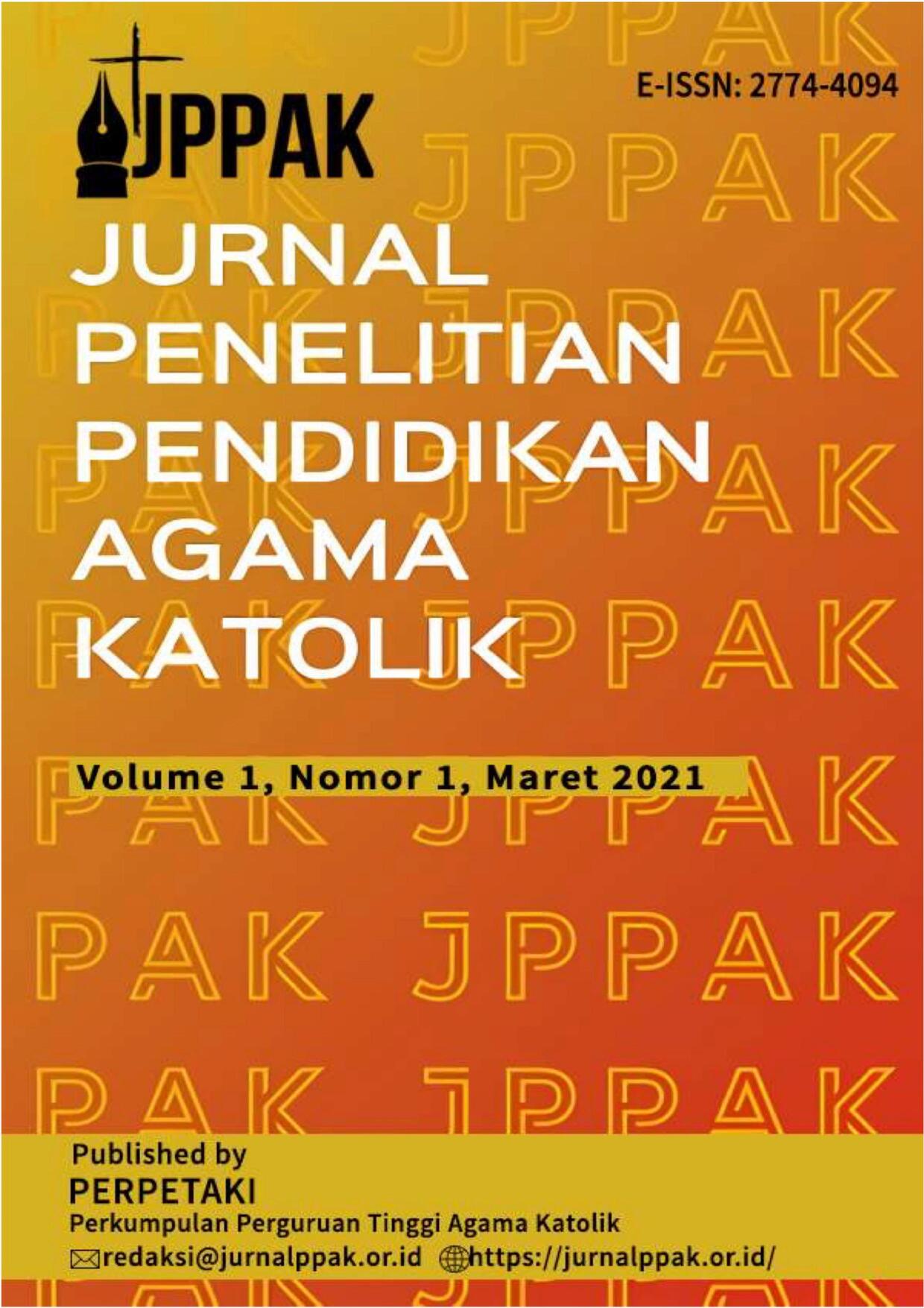The Use of Media by Catholic Religion Teachers in the City of Pontianak
DOI:
https://doi.org/10.52110/jppak.v1i1.2Keywords:
Media utilization; Study of Catholic Religious EducationAbstract
There is an assumption that the use of learning tools by Catholic Religion teachers is still uncommon, albeit essential. This paper intends to find and describe the utilization of media during this time by primary School of Catholic religious Education teachers in the city of Pontianak and at the same time finding the supporting factors and barriers in using the learning tools. The method used is qualitative with data collected from seven primary school Catholic religious teachers. Data is derived from live observation, interviews, and field documentation. Results are processed with qualitative data analysis techniques. The research team found that Catholic religious education teachers might not have maximized the utilization of the media in the Catholic religious learning process at school. Albeit the access to some supporting factors in some schools, such as: classrooms, computers, whiteboards, imageries, and teaching books, several factors reduced the usage of learning tools in Catholic Religion. Some of the internal factors were the teachers’ lack of ability in designing the media, or in using technologies necessary for that, or just the reluctance to learn them. As for the external factors, some schools did not have a particular room for Catholic religion classes. Hence, class alterations were common.
Downloads
##submission.downloads##
Submitted
Accepted
Published
How to Cite
Issue
Section
License
Copyright (c) 2021 Jurnal Penelitian Pendidikan Agama Katolik

This work is licensed under a Creative Commons Attribution 4.0 International License.
Copyright Notice and Permissions
Jurnal Penelitian Pendidikan Agama Katolik offers immediate open access to all its content on the principle to make researches freely available to the public, especially to the scholars, to support greater global exchanges of knowledge. This journal encourages all scholarly authors to allow their research openly available, free access and without time restrictions.
All articles published Open Access will be immediately and permanently free for everyone to read and download. Under the CC BY-SA 4.0 license, authors retain ownership of the copyright for their article, however authors grant others permission to use the content of publications in Jurnal Penelitian Pendidikan Agama Katolik (JPPAK) in whole or in part provided that the original work is properly cited. Users (redistributors) of Jurnal Penelitian Pendidikan Agama Katolik (JPPAK) are required to cite the original source by including at least: the full title of the article, the author's or authors' full name(s), JPPAK as the initial source of publication, year of publication and volume number using a propriate citing method.
Copyright encompasses exclusive rights to reproduce and deliver the article in all form and media, including reprints, photographs, microfilms and any other similar reproductions, as well as translations. The reproduction of any part of this journal, its storage in databases and its transmission by any form or media, such as electronic, electrostatic and mechanical copies, photocopies, recordings, magnetic media is prohibited without consent of Jurnal Penelitian Pendidikan Agama Katolik (JPPAK).
Jurnal Penelitian Pendidikan Agama Katolik (JPPAK) is licensed under a Creative Commons Attribution Share-Alike 4.0 International. (CC BY-SA 4.0)
Authors who publish with Jurnal Penelitian Pendidikan Agama Katolik (JPPAK) agree to the following terms:
- Authors retain copyright and grant the journal right of first publication with the work simultaneously licensed under a Creative Commons Attribution Share-Alike 4.0 International (CC BY-SA 4.0) license that allows others to share the work with an acknowledgement of the work's authorship and initial publication in this journal.
- Authors are able to enter into separate, additional contractual arrangements for the non-exclusive distribution of the journal's published version of the work (e.g., post it to an institutional repository or publish it in a book), with an acknowledgement of its initial publication in this journal.
- Authors are permitted and encouraged to post their work online (e.g., in institutional repositories or on their website) after the publication on JPPAK, as long as it not published on other OJS for it will be treated as plagiarism by plagiarism checker apps. It can lead to productive exchanges, as well as earlier and greater citation of published work (See The Effect of Open Access).












